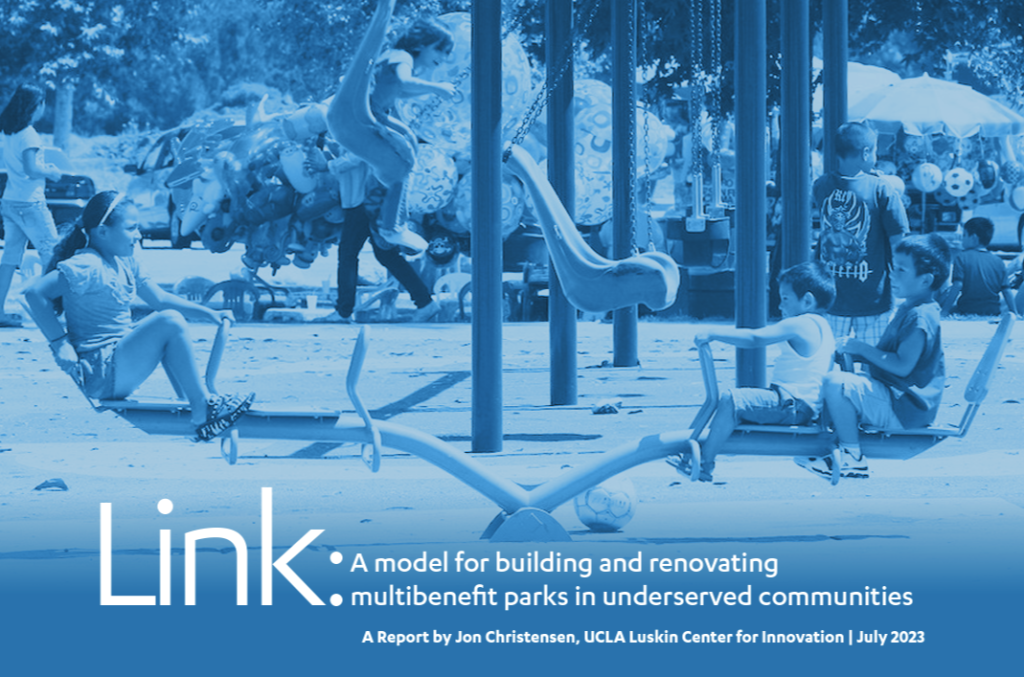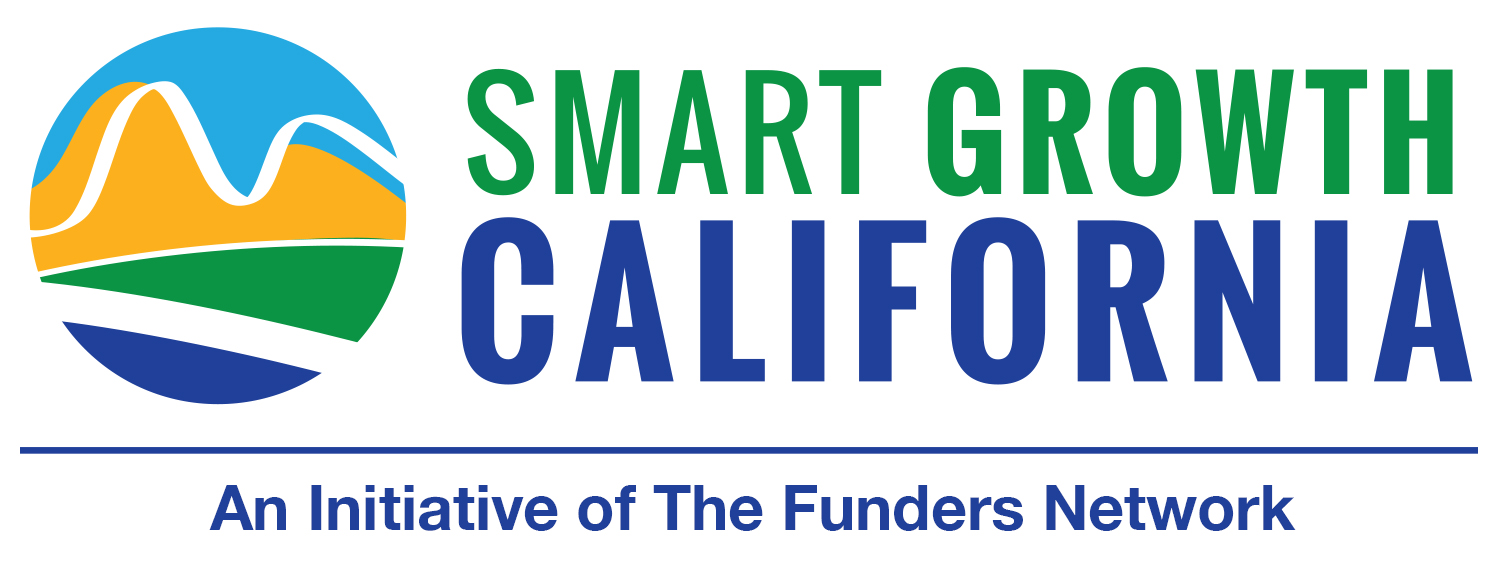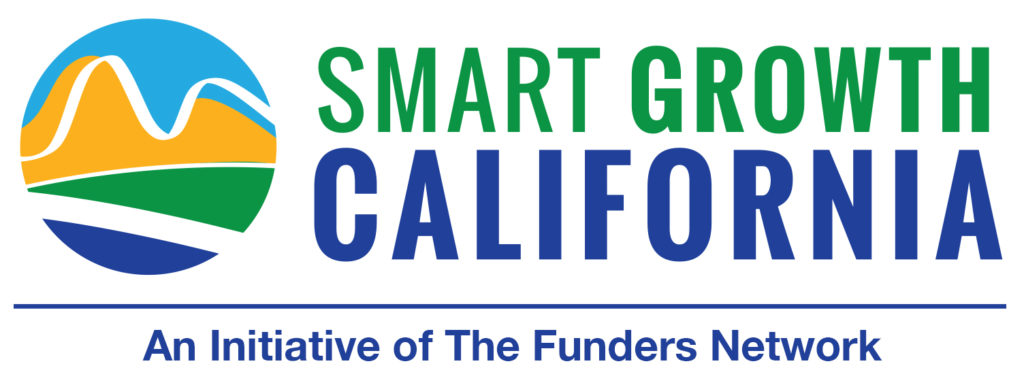 Link: A model for building and renovating multibenefit parks in underserved communities
Link: A model for building and renovating multibenefit parks in underserved communities
For the last three years, several funders active in our Los Angeles Funders’ Collaborative, including First 5 LA, Resources Legacy Fund, The Rosalinde and Arthur Gilbert Foundation, and the California Wellness Foundation have supported LINK (The LINK Advocates, Governments, Families, and Parks Initiative), leveraging over $1.4 million to provide technical and investment support to community-based organizations and cities to support equitable implementation of park funding from Measure A and Proposition 68 (which builds upon the Measures Matters report the Collaborative previously supported).
We are pleased to share a link to a formal evaluation of Link just came out, written by Professor Jon Christensen from the UCLA Institute for The Environment: Link: A model for building and renovating multibenefit parks in underserved communities.
“Link brought together parents, residents, and community leaders who advocated for better parks and open spaces for children and others to play in,” said John Guevarra, co-chair of the LA Funders Collaborative and Senior Program Officer at First 5 LA, “And, they did this in partnership with their local elected officials, City staff, and community-based organizations. Link is a model for how philanthropy can support community priorities.”
As the Luskin Center notes in its blog about the report, “Collaboration is fundamental to the Link approach. A new report summarizes findings from the study of how experienced nonprofit park-building organizations and community-based organizations worked with under-resourced municipal governments and agencies to implement community-driven planning for parks and multibenefit green infrastructure projects in six disadvantaged communities in Los Angeles County.”
Lisa Craypo, representing The Rosalinde and Arthur Gilbert Foundation and co-chair of the LA Funders Collaborative, noted the tangible benefits Link has achieved, “the funder investment in Link achieved substantial and meaningful outcomes – community voice drove park projects, community organizations, park experts and local municipalities formed productive working relationships that are extending beyond the funded projects, and Link achieved a remarkable return on investment, drawing down over $31 million in public park construction/renovation funds to LA’s historically disinvested communities.”
Alfredo Gonzalez, with the Resources Legacy Fund who also serves on our Los Angeles Funder Collaborative, shared in a blog post that “the UCLA Luskin Center for Innovation concluded that not only is the Link model working, but “we must create effective ways to publicly support this model because it is providing essential services for successful implementation of public policies supported by voters, and public benefits.” All eight of the evaluation’s recommendations involve strategies to grow and scale the program to achieve more park equity in the region. Link is advancing systems change, transforming how infrastructure funding is delivered in the largest metro area in the country.
Below are three paragraphs from the report noting the role of our Los Angeles Funders’ Collaborative in supporting this work:
“The Los Angeles Funders Collaborative, a group of progressive philanthropies that had supported the measures, turned their attention to implementation. At their center was Beatriz Solis, a charismatic leader in The California Endowment, who insisted that healthy communities would be the most important outcome and that progress needed to be measured to ensure success. Several organizations in the collaborative agreed to fund research and a report to develop metrics for implementation of the measures.
Renowned sociologist Manuel Pastor and his team at the University of Southern California’s Program for Environmental and Regional Equity produced “Measures Matter,” a report and a road map for equitable implementation. “Measures Matter” built on the successful community organizing that led to the passage of the measures. Based on the experiences of dozens of CBOs, experts, and implementers, it framed a structure for implementation and metrics to measure success. It was a road map. But there was still much to discover and learn about the path ahead.
When the Los Angeles Funders Collaborative met to consider next steps, several of the members agreed to double down on their investment in implementation, while focusing on what it takes to build parks in under- resourced, park-poor areas of LA County. They decided on a model. They would fund a CBO and a nonprofit technical assistance provider to work with a city agency in as many high-need areas as they could to implement park projects that would qualify for Measure A and other public funding. Resources Legacy Fund has served as project manager, regularly convening participants in a peer learning group to work through challenges and review successes.”
To learn more about the Los Angeles Funders Collaborative and/or about the Link Initiative, contact Ron Milam.

